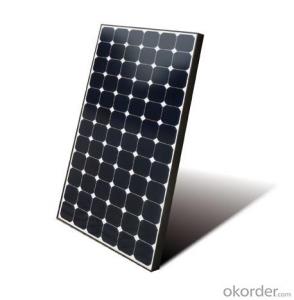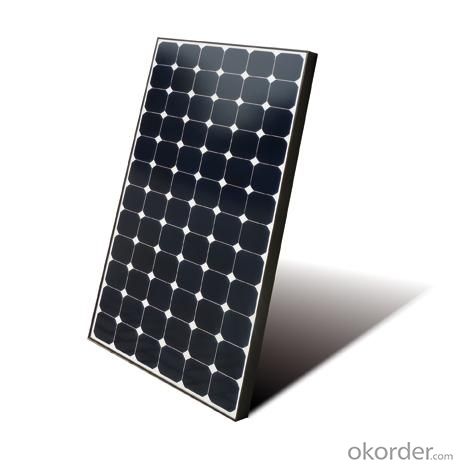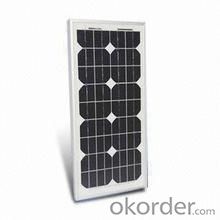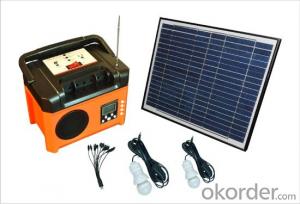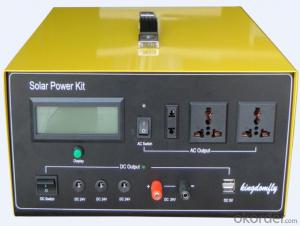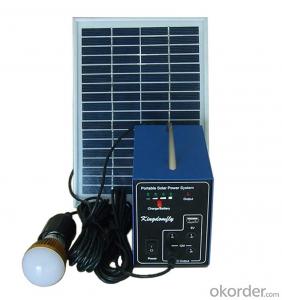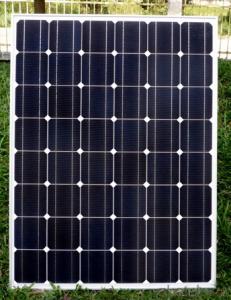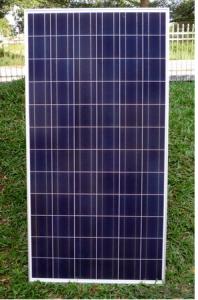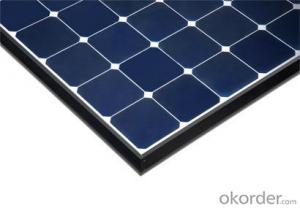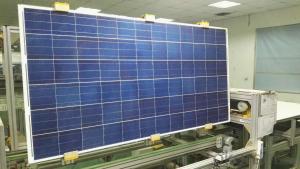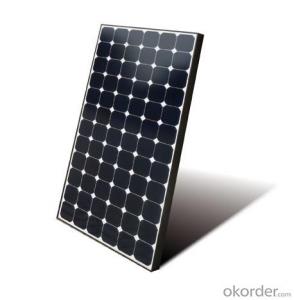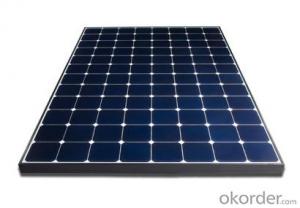Home Depot Solar Energy Systems - CNBM Poly 80W Off Grid Solar System with 10 Years Warranty
- Loading Port:
- Shanghai
- Payment Terms:
- TT OR LC
- Min Order Qty:
- 100 watt
- Supply Capability:
- 1000 watt/month
OKorder Service Pledge
OKorder Financial Service
You Might Also Like
Specification
CNBM Poly 80W Off Grid Solar Sytem with 10 Years Warranty
Product description
Electrical power can be generated on-site with renewable energy sources such as solar (particularly with photovoltaics), wind, micro hydro, geothermal; with a generator or Micro combined heat and power with adequate fuel reserves. Such a system is called a stand-alone power system. In addition, it is possible to simply eliminate electric power such as in Old Order Amish and Old Order Mennonitecommunities.
TThe concept of a sustainable off-grid community must take into consideration the basic needs of all who live in the community. To become truly self-sufficient, the community would need to provide all of its own electrical power, food, shelter and water. Using renewable energy, an on-site water source, sustainable agriculture and vertical farming techniques is paramount in taking a community off the grid. A recent concept design by Eric Wichman shows a multi-family community, which combines all of these technologies into one self-sufficient neighborhood. To grow the community you simply add neighborhoods using the same model as the first. A self-sustained community reduces its impact on the environment by controlling its waste and carbon footprint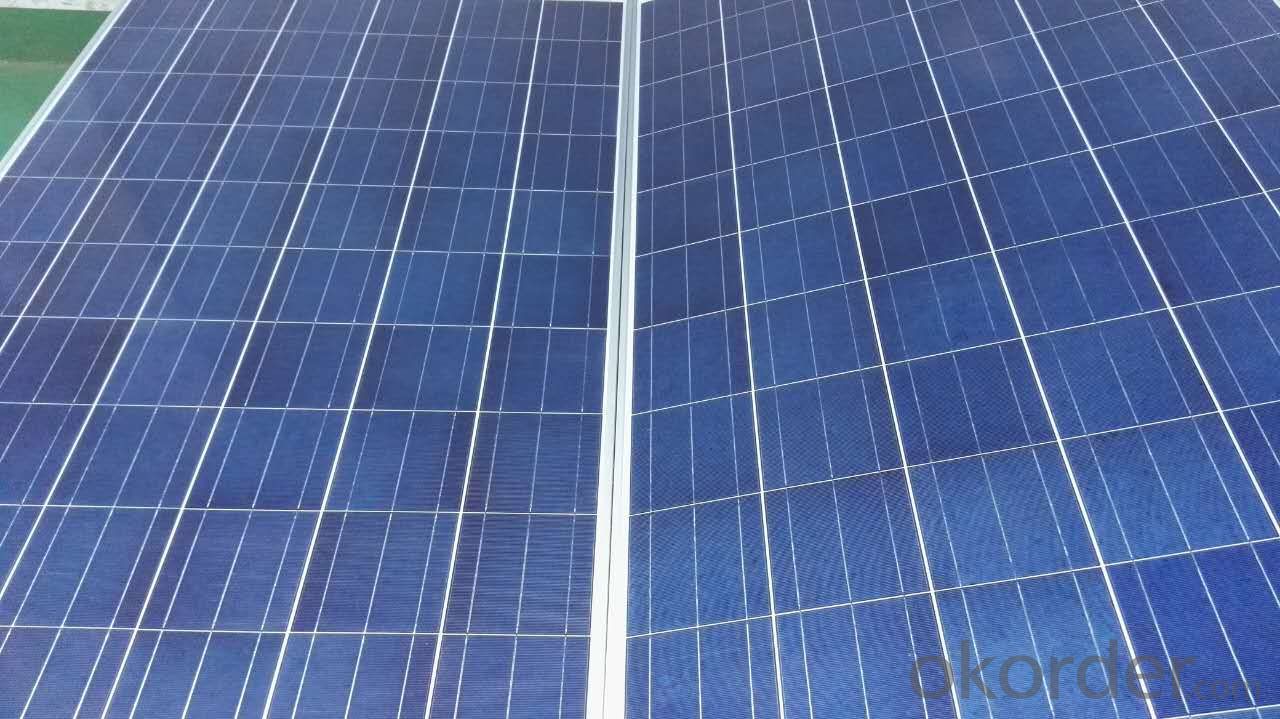
Application
Residential
Commercial
Industrial
Feature
Off-the-grid homes are autonomous; they do not rely on municipal water supply, sewer, natural gas, electrical power grid, or similar utility services. A true off-grid house is able to operate completely independently of all traditional public utility services. The idea has been recently popularized by certain celebrities including Ed Begley, Jr.[3] who stars in the Living with Ed[4] television show on the Home & Garden Television (HGTV) network. Actress Daryl Hannah promotes off-grid living and constructed her home in Colorado according to those principles, as does survival expert and Dual Survival co-star Cody Lundin,[5] who lives in a self-designed, passive solar earth house in the high-desert wilderness of Northern Arizona, collecting rainwater, composting waste, and paying nothing for utilities.[6][7]
Packaging
With carton and box
- Q: Can solar energy systems be used for desalination?
- Yes, solar energy systems can be used for desalination. Solar-powered desalination plants use solar energy to power the desalination process, typically through the use of solar panels or solar thermal collectors. This renewable energy source can be harnessed to convert saltwater into fresh water, making it an environmentally friendly and sustainable solution for water scarcity in coastal and arid regions.
- Q: What is the impact of solar energy systems on reducing energy poverty?
- Solar energy systems have a significant impact on reducing energy poverty by providing access to affordable and sustainable electricity to communities that lack reliable access to traditional power grids. One of the key advantages of solar energy systems is their ability to generate electricity from sunlight, which is available in abundance in many parts of the world. This means that even in remote and underserved areas, solar energy systems can be installed to generate clean energy, thereby reducing dependence on expensive and polluting fossil fuels. By harnessing the power of the sun, solar energy systems can bring electricity to households, schools, and healthcare facilities in rural areas that were previously reliant on costly and unreliable alternatives such as kerosene lamps or diesel generators. This not only improves the quality of life for individuals and communities but also enables economic development by enabling access to modern technologies and opportunities. Furthermore, solar energy systems also contribute to reducing energy poverty by providing a stable and reliable energy source. Since solar panels require minimal maintenance and have a long lifespan, once installed, they can continue to generate electricity for years, thereby reducing the risk of power outages and ensuring a consistent energy supply. Moreover, solar energy systems can also empower communities by enabling them to become energy-independent and self-sufficient. By installing solar panels on rooftops or utilizing solar-powered mini-grids, communities can generate their own electricity and reduce their reliance on centralized energy systems. This not only increases energy security but also creates opportunities for income generation through the sale of excess electricity back to the grid. In summary, solar energy systems play a crucial role in reducing energy poverty by providing affordable and sustainable electricity to underserved communities. They not only improve the quality of life for individuals but also contribute to economic development and empower communities to become self-reliant. By leveraging the abundant and renewable energy of the sun, solar energy systems have the potential to transform the lives of millions of people and help alleviate energy poverty globally.
- Q: Can solar energy systems be used for powering electric vehicle solar charging canopies?
- Yes, solar energy systems can be used to power electric vehicle solar charging canopies. Solar panels can be installed on the canopy structure to harness sunlight and convert it into electricity. This electricity can then be used to charge the batteries of electric vehicles parked under the canopy. This setup not only utilizes clean and renewable energy from the sun but also provides a convenient and sustainable charging solution for electric vehicles. Additionally, excess energy generated by the solar panels can be stored in batteries or directed back to the grid, further enhancing the environmental benefits of this system.
- Q: Can solar energy systems be used in powering dental clinics or medical clinics?
- Certainly, dental clinics or medical clinics can indeed utilize solar energy systems to generate power. Solar energy, a clean and sustainable power source, can be harnessed through photovoltaic (PV) panels to produce electricity. These panels convert sunlight into usable energy, which can then be utilized to operate various electrical equipment and appliances in dental or medical clinics. Typically, dental and medical clinics require a substantial amount of electricity for their operations, including lighting, air conditioning, medical equipment, computers, and other electrical devices. By installing solar panels, these clinics can decrease their reliance on the traditional power grid and lower their electricity expenses. Solar energy systems can be tailored to meet the specific energy requirements of dental or medical clinics, ensuring smooth and efficient functioning. The electricity generated by solar panels can be optimized by analyzing the clinic's energy consumption patterns and installing an appropriate number of solar panels to meet the demand. Moreover, besides the cost savings, employing solar energy systems also offers environmental advantages. Solar power is a clean energy source that does not produce any greenhouse gas emissions or air pollutants during operation. By transitioning to solar energy, dental and medical clinics can decrease their carbon footprint and contribute to a healthier environment. Additionally, solar panels have a long lifespan and require minimal maintenance, making them a dependable and resilient energy solution for dental and medical clinics. With proper installation and regular inspections, solar energy systems can provide a consistent and uninterrupted power supply for many years. All in all, solar energy systems present a practical and feasible choice for powering dental or medical clinics. They provide cost savings, environmental benefits, and a reliable electricity source, enabling clinics to operate efficiently while minimizing their impact on the environment.
- Q: What is the impact of shade from nearby buildings or trees on the performance of solar panels?
- The performance of solar panels is significantly affected by the shade caused by nearby buildings or trees. Even partial shading can greatly reduce their ability to generate electricity by decreasing the amount of sunlight reaching the panels. This shading can lead to a phenomenon called "panel mismatch," where some parts of the panel receive sunlight while others remain in shade. As a result, shaded cells produce less electricity than unshaded cells, resulting in an overall drop in panel performance. Additionally, shaded cells can create resistance, causing the other cells to work harder and potentially causing hotspots or damage. Furthermore, shade can disrupt the electrical flow within the panels, negatively impacting the entire solar power system. In series-connected panels, even one shaded cell can significantly reduce the output of the entire array, resulting in a substantial loss of power generation and affecting the return on investment and payback period. Considering the shading factor is crucial when designing and installing solar panels. Conducting shading analysis can reveal potential areas of shade throughout the day and year. By avoiding or mitigating shading, the performance and efficiency of solar panels can be optimized. There are various measures that can be taken to address shading issues, such as adjusting the tilt and orientation of the panels, trimming or removing nearby trees, or utilizing technologies like micro-inverters or power optimizers that minimize the impact of shade on the system. In conclusion, nearby buildings or trees causing shade have a significant impact on the performance and efficiency of solar panels, reducing their power generation potential. Considering shading factors during the design and installation process is crucial to maximize the benefits of solar energy.
- Q: Can a solar energy system be installed on a vehicle?
- Indeed, it is possible to install a solar energy system on a vehicle, giving rise to what is commonly referred to as a solar-powered vehicle or solar car. These exceptional automobiles are specifically designed to harness the sun's energy by utilizing solar panels that are strategically placed on the roof or other sections of the vehicle. These solar panels work by converting sunlight into electricity, which is then employed to power the vehicle's electric motor or stored within batteries for future consumption. Solar cars, being a sustainable and environmentally conscious option, serve as an excellent alternative to conventional fuel-powered vehicles by decreasing dependency on fossil fuels and producing absolutely no emissions. Although solar cars have not yet reached the same level of popularity as traditional vehicles, ongoing technological advancements are steadily improving their efficiency and practicality for everyday use.
- Q: Can solar energy systems be installed in areas with high winds?
- Solar energy systems are indeed capable of being installed in areas that experience strong winds. The consideration of wind speeds during the installation of solar panels is vital to guarantee their durability and longevity. These panels are specifically engineered to endure various weather conditions, including gusty winds. By implementing robust mounting systems and utilizing suitable fasteners, their ability to resist wind damage can be further reinforced. Furthermore, certain manufacturers subject their solar panels to rigorous testing procedures to ensure they can withstand high wind speeds. It is highly advisable to seek the guidance of a professional installer who can evaluate the unique conditions of the location and develop a solar energy system that can effectively endure strong winds.
- Q: Can solar energy systems be used for heating water in commercial buildings?
- Yes, solar energy systems can be used for heating water in commercial buildings. Solar water heating systems utilize the sun's energy to heat water, which can then be used for various purposes like showers, dishwashing, and laundry in commercial settings. These systems are cost-effective, environmentally friendly, and can significantly reduce energy consumption.
- Q: Can solar energy systems be used for powering electric vehicle showrooms?
- Certainly, solar energy systems have the capability to power electric vehicle showrooms. Solar energy, which is both clean and renewable, can effectively supply electricity to a wide array of applications, such as commercial buildings like showrooms. By installing solar panels on the showroom's roof or surrounding areas, the sun's energy can be converted into electricity. This generated electricity can then be utilized to operate various functions within the showroom, including lighting, air conditioning, charging stations, and other electrical equipment. This not only decreases reliance on grid electricity, but it also aids in lowering carbon emissions and promoting sustainability. Moreover, solar energy systems can offer a cost-effective solution in the long term, as they contribute to reducing or eliminating electricity bills while providing a reliable and consistent power source.
- Q: Can solar energy systems be used for powering off-grid construction sites?
- Yes, solar energy systems can be used to power off-grid construction sites. They provide a reliable and sustainable source of power, eliminating the need for traditional grid connections. Solar panels can be installed on-site to generate electricity, which can be stored in batteries for use during non-sunlight hours. This reduces dependence on fossil fuel generators, minimizes noise and air pollution, and promotes environmental sustainability in construction operations.
Send your message to us
Home Depot Solar Energy Systems - CNBM Poly 80W Off Grid Solar System with 10 Years Warranty
- Loading Port:
- Shanghai
- Payment Terms:
- TT OR LC
- Min Order Qty:
- 100 watt
- Supply Capability:
- 1000 watt/month
OKorder Service Pledge
OKorder Financial Service
Similar products
Hot products
Hot Searches
Related keywords
